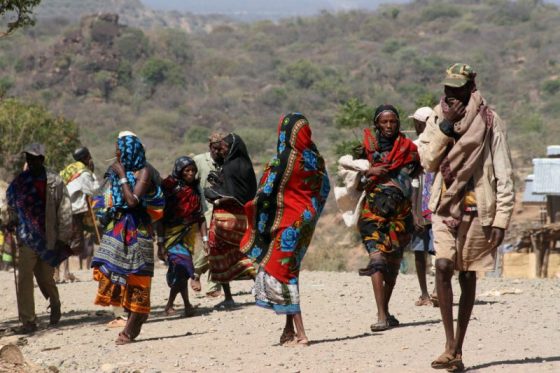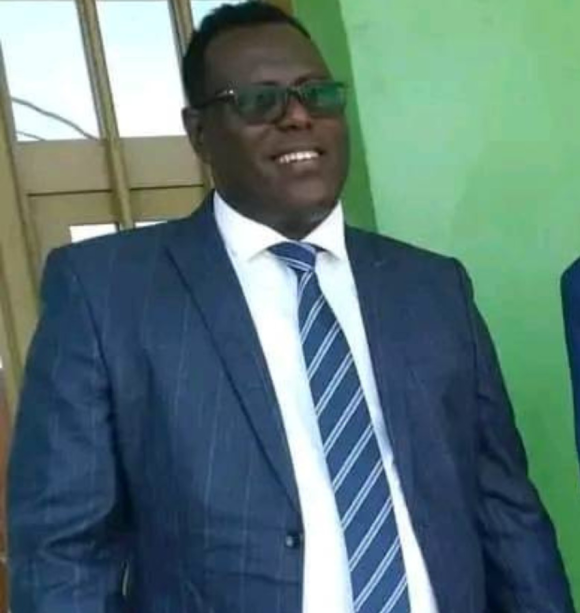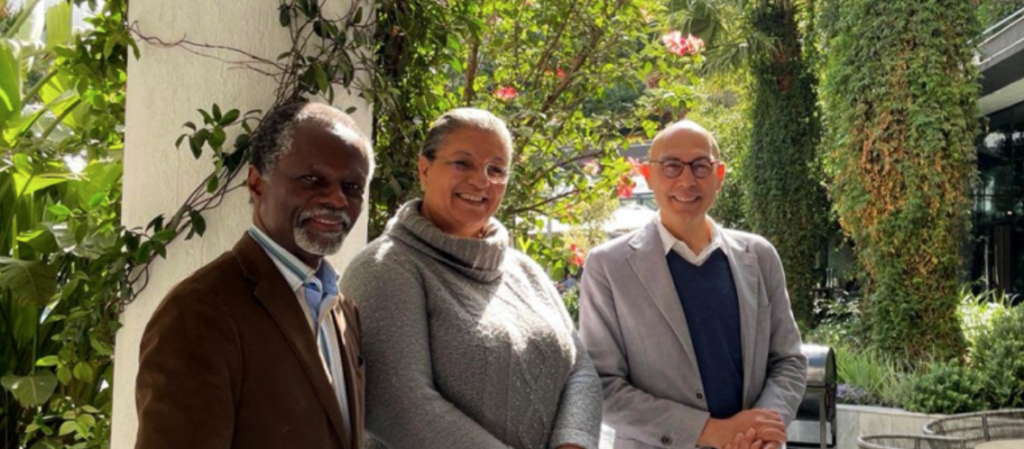This report is part of OLLAA’s monthly report series documenting the ongoing pattern of human rights abuses perpetrated against Oromo civilians, both inside Ethiopia and throughout the world. These reports also document the humanitarian situation inside Oromia, including the effects of the drought and conflict on civilians.
Acts of Violence Against Civilians
In the month of May, OLLAA published numerous reports detailing a series of vicious attacks targeting innocent Oromo civilians, carried out by both state agents and non-state armed actors along with armed conflict that has engulfed the two Guji Zones for the past 5 years. Civilians in Guji have been subjected to extra-judicial killings, mass arrests, rape and other sexual violence, property destruction, enforced disappearances, forced required, and other damaging violations of their human rights.

Documents given by community members share a partial list of victims of these extrajudicial executions, including 7 prisoners who were expected in different prisons in the Guji zone. These included Galma Utura, Dhadacha Mi’essa, and Abdulahi Golu, who were all removed from the prison in Raro, Goro Dola district on 28 Sept 2019 and executed. The victim Badhu Golicha, who was taken from prison by members of Ethiopian National Defense Force on February 2nd, 2023 in Hardot, Liban district and was executed. According to the information obtained from the community members in the Guji zones, hundreds of civilians have been killed since 2019 for different reasons.
Omer Lemma, the Organizational Department Head of the ruling Prosperity Party (PP) in Harka Woreda, Afar Regional State, was fatally shot while traveling from Adama city to Awash on May 8th. According to a report, Omer and his brother Mohammed were attacked by unknown gunmen in the Welenchiti area of Oromia regional state.
Omer’s brother, Ali Lemma, who survived the attack, stated that around 30 gunmen, appearing like former national defense forces, were involved. The victims were returning from Adama city after their father’s medical treatment. The funeral for Omer and Mohammed was held in Awash city. Notably, this is the third killing of a high-ranking Prosperity Party official in recent weeks, following the deaths of Desalegn Bokonja in Nekemmte and Girma Yeshitila in the Amhara region.

On May 17th rebels in the Oromia region accused the federal troops of launching attacks on civilians, despite an agreement stemming from the Tanzania peace talks to de-escalate the ongoing conflict. Preliminary talks between the OLA and government took place earlier this month in Tanzania, with no agreement reached once the talks ended on May 3rd. OLA spokesperson Odaa Taribii said the attacks contradicted the understandings that the two parties had reached. Taribii said that “De-escalation is a priority”.
The OLA claimed that federal troops attacked several points in the Oromia region, specifically West and East Wellega, East and West Shoa, Asi Borana, Harerghe and Horo Guduru. They burned homes, robbed, and committed acts of sexual violence, as well as other crimes.
Prospects for Peace
The first round of peace talks between the Ethiopian government and rebels from the Oromia region concluded without reaching a deal, according to both parties. The Oromo Liberation Army (OLA), has accused the federal government of marginalization and neglect. The talks, facilitated by the regional organization IGAD, took place in Zanzibar, Tanzania. While the discussions were mostly constructive, certain issues remained unresolved. However, both parties have agreed to continue the dialogue.
In the wake of grave violence and casualties that have shaken Ethiopia, there exists a glimmer of hope for peace and justice. Cardinal Berhaneysesus Souraphiel, in a candid conversation with Vatican News, spoke about the prevailing atmosphere of tranquility and the aspirations that continue to echo within the hearts of the Ethiopian people. The Cardinal, with an unwavering belief in the power of forgiveness and genuine reconciliation, expressed his fervent hope for lasting peace to take root in the nation.
Humanitarian Situation
Since 2020, the Boreza zone of Oromia has been experiencing severe drought due to five failed rainy seasons. Eastern Mennonite Missions (EMM) and the Landcaster, PA based Anabaptist fellowship LMC are inviting contributions to respond to humanitarian appeal from the Meserete Kristos Church in Ethiopia. EMM has committed 5,000 of emergency relief funds and invites others to join financially. While attempts have been made to respond to the drought and its effects on displacement and other socioeconomic challenges, the need has been growing.
UNICEF has reported that in Borena alone, 3.3 million livestock have died due to the drought. The UN Office for the Coordination of Humanitarian Affairs estimated that 6.85 million livestock have died throughout the country since 2021. The impacts have spread beyond the Borena zone, with over 11 million people experiencing food insecurity, and 24 million have been affected total.

The United Nations Office for the Coordination of Humanitarian Affairs (OCHA) has highlighted the deteriorating humanitarian situation in the East and West Wollega zones of Ethiopia’s Oromia regional state. The ongoing insecurity and conflict since 2020 have exacerbated the challenges faced by the affected population. According to OCHA’s latest situation report on Ethiopia, although there has been some improvement in access, approximately 859,000 displaced people in the region are still in urgent need of protection and multi-sectoral support.
International Response
UN High Commissioner for Human Rights, Volker Türk, concluded a two-day visit to Addis Ababa, Ethiopia on May 2nd. During his visit, he engaged in valuable discussions with the African Union to enhance the partnership between the UN Human Rights Office and the African Union. Türk and African Union Commission Chairperson Moussa Faki agreed to strengthen their cooperation and conducted regular high-level strategic dialogues.
High Commissioner Türk highlighted the significance of human rights as a means to address grievances and divisions in society, promote peace, and foster sustainable development. He underscored the importance of participatory and inclusive processes that respect freedom of expression and maintain a vibrant and open civic space.

U.S. Special Envoy for the Horn of Africa, Ambassador Mike Hammer, met with members of the Ethiopian diaspora community in Los Angeles, California, during his travel from May 10th to 19th. The discussions covered various topics, including the implementation of the Pretoria Cessation of Hostilities Agreement, which brought an end to Ethiopia’s two-year war. Ambassador Hammer engaged with representative groups from the Amhara, Oromo, Somali, and Tigrayan communities, and participated in a town hall event hosted by the United Women of the Horn, focusing on peace and women’s empowerment.
Conclusion and Recommendations
The Oromo have faced systematic human rights abuses at the hands of multiple Ethiopian governments. Despite the repressive tactics they have faced for generations, they have, time and again, sacrificed their lives to advance human rights in Ethiopia, including by leading the peaceful protests that led to Prime Minister Abiy Ahmed’s rise to power in 2018.
Unfortunately, over the last four years, the situation for the Oromo has only worsened, particularly following times of relative peace in northern Ethiopia. Since the signing of the peace agreement between the TPLF and the Ethiopian government in November 2022, there have been increasing reports of attacks against civilians, both by Ethiopian security forces and non-state armed actors. As documented above, these trends continued in May 2023.
Despite the growing body of evidence of a systematic pattern of human rights abuses being perpetrated against the Oromo, the plight of the Oromo continues to be ignored by the international community. OLLAA fears that the continued failure of the international community to pressure the Ethiopian government to protect human rights and seek a peaceful means to end the conflict inside Oromia will only lead to further loss of life and the destabilization of the entire Horn of Africa.
As such, OLLAA calls on the international community to:
- Condemn the human rights violations noted in this report, as well as all other credible allegations of human rights violations throughout the country;
- Consider launching independent investigations into reports of human rights violations committed inside Oromia and across the country, and support the work of the UN International Commission of Human Rights Experts on Ethiopia;
- Pressure the Ethiopian government to find peaceful means to end the conflict in Oromia, as it has done with TPLF in northern Ethiopia;
- Ensure provision of humanitarian assistance to all who need it across Ethiopia, including inside Oromia;
- Ensure the Oromo are included in any transitional justice measures, including inclusive dialogue processes.

